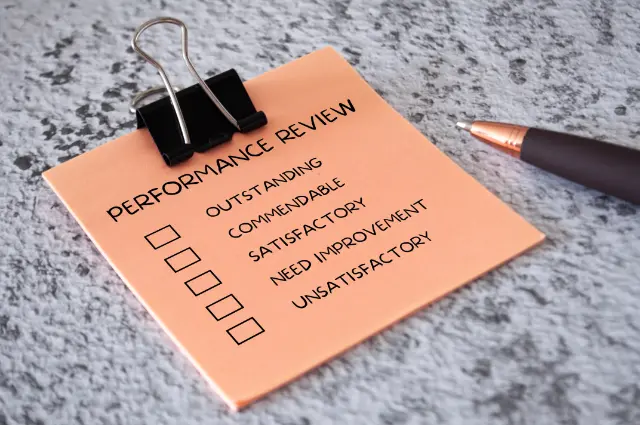Embracing Quality Control Automation: A Path to Precision and Productivity
In the fast-paced manufacturing landscape, ensuring product quality and consistency is paramount. Traditional quality control processes, often reliant on manual inspections, can be time-consuming, error-prone, and subjective. Quality Control Automation emerges as the answer, offering a streamlined and precise solution.
Python, with its robust libraries for data analysis and AI, plays a pivotal role in Quality Control Automation. Cloud-based solutions provide the necessary infrastructure and scalability to handle large volumes of data and complex algorithms. By leveraging these technologies, manufacturers can automate their inspection processes, saving time, reducing errors, and enhancing overall productivity.

Python, AI, and Cloud: The Powerhouse Trio for Quality Control Automation
Python, with its versatility and powerful libraries, is the ideal choice for developing both unattended and attended bots for Quality Control Automation.
Unattended bots can run autonomously, 24/7, performing repetitive tasks such as image analysis and data validation. Attended bots, on the other hand, collaborate with human operators, providing real-time assistance and automating tasks based on user input. The level of customization available when building bots with Python allows for tailored solutions that meet specific quality control requirements.
Cloud platforms offer a comprehensive suite of features and capabilities that surpass traditional RPA/workflow tools. Their scalability, flexibility, and advanced analytics capabilities make them ideal for orchestrating complex Quality Control Automation processes. The cloud also provides access to a wide range of AI services, including image recognition, natural language processing (NLP), and generative AI (Gen AI).
AI plays a crucial role in enhancing the accuracy and efficiency of Quality Control Automation. Image recognition algorithms can detect defects and anomalies in products with a high degree of precision. NLP can analyze inspection reports and provide insights for continuous process improvement. Gen AI can handle complex and unstructured data, enabling the automation of tasks that were previously impossible.
By leveraging the combined power of Python, AI, and cloud platforms, manufacturers can achieve unprecedented levels of automation, accuracy, and efficiency in their quality control processes.

Building the Quality Control Automation Solution with Python and Cloud
Step 1: Process Analysis
Analyze the existing quality control processes to identify suitable subprocesses for automation. Consider factors such as task complexity, data availability, and potential impact on product quality.
Step 2: Data Collection and Preparation
Gather the necessary data for training AI models and developing automation scripts. Ensure data quality and compliance with industry standards and regulations.
Step 3: Model Development
Develop AI models using Python libraries such as TensorFlow or PyTorch. Train the models on the collected data to detect defects and anomalies with high accuracy.
Step 4: Bot Development
Create unattended or attended bots using Python to automate the identified subprocesses. Integrate the AI models into the bots to enable intelligent decision-making.
Step 5: Cloud Deployment
Deploy the bots and AI models on a cloud platform to ensure scalability, reliability, and remote access. Utilize cloud services for data storage, analytics, and monitoring.
Data Security and Compliance
Prioritize data security and compliance throughout the automation development process. Implement encryption, access controls, and regular security audits to protect sensitive data.
Advantages of Python over No-Code RPA/Workflow Tools
- Customization: Python provides unparalleled flexibility and customization options, allowing for tailored solutions that meet specific quality control requirements.
- Integration: Python seamlessly integrates with a wide range of AI libraries and cloud services, enabling end-to-end automation workflows.
- Scalability: Python-based automations can easily scale to handle large volumes of data and complex processes, making them suitable for enterprise-level manufacturing operations.
Algorythum’s Approach: Empowering Clients with Python Expertise
Algorythum recognizes the limitations of off-the-shelf automation platforms and takes a different approach. By leveraging Python and cloud technologies, we empower our clients with:
- Tailor-made solutions: Custom-built automations that address their unique quality control challenges.
- Superior performance: Python-based automations deliver unmatched accuracy, efficiency, and scalability.
- Long-term value: Our solutions are designed to evolve and adapt as manufacturing processes change over time.

The Future of Quality Control Automation
The convergence of Python, AI, and cloud technologies is unlocking limitless possibilities for Quality Control Automation. Future advancements in these domains will further enhance the capabilities of automated inspection processes:
- Edge Computing: Deploying AI models on edge devices will enable real-time defect detection and anomaly identification, reducing latency and improving responsiveness.
- Autonomous Inspection: AI-powered bots will become increasingly autonomous, performing complex inspections without human intervention, freeing up valuable resources for higher-level tasks.
- Predictive Maintenance: By analyzing historical inspection data, AI algorithms can predict potential defects and schedule maintenance accordingly, minimizing downtime and maximizing equipment lifespan.
Subscribe to Our Blog
Stay up-to-date with the latest trends and advancements in Quality Control Automation by subscribing to our blog. We regularly publish industry-specific automation insights and case studies.
Contact Our Team
If you’re considering Quality Control Automation for your manufacturing operations, contact our team today. We offer free feasibility assessments and cost estimates tailored to your specific requirements. Let us help you revolutionize your quality control processes and achieve operational excellence.

Algorythum – Your Partner in Automations and Beyond
At Algorythum, we specialize in crafting custom RPA solutions with Python, specifically tailored to your industry. We break free from the limitations of off-the-shelf tools, offering:
- A team of Automation & DevSecOps Experts: Deeply experienced in building scalable and efficient automation solutions for various businesses in all industries.
- Reduced Automation Maintenance Costs: Our code is clear, maintainable, and minimizes future upkeep expenses (up to 90% reduction compared to platforms).
- Future-Proof Solutions: You own the code, ensuring flexibility and adaptability as your processes and regulations evolve.









